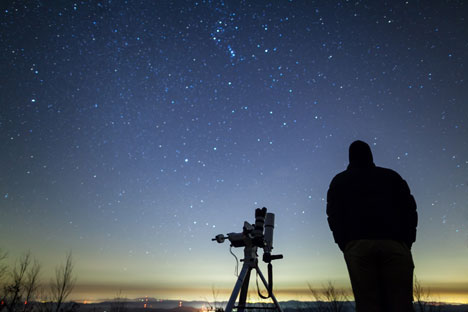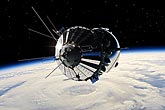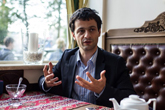Harvard versus Moscow State: Salaries and red tape

Igor Chilingaryan: "It is unfair that a professor earns less than a bus driver". Source: Getty Images / Fotobank
Gazeta.ru: You work at Harvard and at Moscow State University. Can you compare the working conditions in these two institutions? How do the salaries and the amount of bureaucracy compare?
Igor Chilingaryan: Of course, wages in Russia cannot be compared with those in the United States. A full professor at Harvard[the equivalent of a professor at Moscow State University] starts out at approximately $200,000 per year before taxes—the salary increases with experience.
A young professor at Moscow State University receives about 30,000 rubles [$917] a month, or, say 35,000 [$1070] before taxes. So, a Harvard professor makes more in a month than an MSU professor receives in a year.
But what I find unfair is not even that, but the fact that a professor at Moscow State University with a Ph.D. earns less than a bus driver.
In fact, I do not work at Harvard, but at the Smithsonian Astrophysical Observatory, which is a branch of the Smithsonian Institution, a U.S. governmental body.
Because of this, we suffer terribly there from bureaucracy that they don't have at Harvard, because it has a different status. But all of this pales in comparison to what they face in Moscow.
In the United States, the bureaucracy is governmental, and you can always find a link to a specific law or regulation; but Russian bureaucracy is based on unwritten rules and someone's verbal orders.
For example, once, when we were returning from a meeting in France, there was a dangerous storm in Geneva and our flight was canceled.
Back at MSU, we had to write a report describing the weather conditions in Geneva, to explain why we flew back to Moscow on a different flight, although it was still on the same day as the original flight.
As a result, instead of doing research, scientists have to sit and compose reports on business trips.
In comparison, I can tell you my experience with delayed flights in the United States. I was flying to Chile for observations and, because of a storm, I missed the connecting flight from Atlanta to Santiago; so I had to spend a day in Atlanta.
Related:
Russia to watch brightest meteor shower of 2013 on Monday night
The problem was solved with one phone call to the administrator of our division: She adjusted the dates herself, added Atlanta to the trip schedule, and re-calculated the per diem. I cannot imagine something like that happening at MSU, at least for the next 10 years.
Gazeta.ru: Do presidential grants provide effective support?
I.C.: Yes, the presidential grant is, in my view, a quite effective program. We have already done more than we were required to do (articles, conferences), with one exception: There hasn't yet been a Ph.D. thesis completed under my supervision.
However, all the materials for a dissertation have already been collected and published, or submitted for publication.
In fact, it seems to me that this requirement—a certain number of dissertations—doesn't make much sense, because our task is to advance science and not to produce dissertations that are, actually, just a formality.
I wrote my doctoral thesis, which is about 300 pages, in 17 days, including translating English articles to Russian and taking care of formalities such as writing the abstract.
And one has to consider the fact that it usually takes students three years to complete graduate school in Russia, and the presidential grant is given for two years—so they don't really match up.
Gazeta.ru: You just got back from France. What kind of event did you attend?
I.C.: This year we decided, in addition to the usual trips to conferences, we would all go work together in a nice, calm place. It was decided to hold our meeting in Chamonix Valley in the French Alps, at the foot of Mont Blanc.
We rented a comfortable and spacious chalet and worked intensely for a week on several projects.
In addition, staying at this location allowed us to invite French and Swiss collaborators from the Paris Observatory and the Federal Polytechnic School of Lausanne.
This proved to be very productive, both for the scientific program and in terms of helping young researchers establish international connections.
Of course, some would say we could have held such an event in, say, the suburbs of Moscow. But keep in mind that it is easier for Russian scientists to obtain a French visa than it is for foreigners to get a Russian one.
This, by the way, creates a lot of headaches for conference organizers in Russia. And would you believe it was cheaper to go to France than to Moscow Region?
First published in Russian in Gazeta.ru.
All rights reserved by Rossiyskaya Gazeta.
Subscribe
to our newsletter!
Get the week's best stories straight to your inbox

